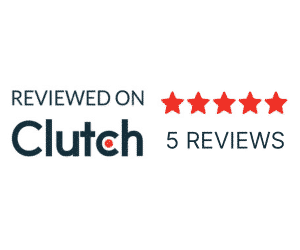The Importance of Authorship in SEO
What is authorship?
Authorship involves assigning a piece of content to an individual who possesses relevant authority on the given subject matter. This practice is most easily accomplished by creating a byline for an author, which then links to the author’s biography page — more on this below. By adhering to this best practice when writing copy for a website, whether it be a landing page, product page, or blog article, you can add an important extra layer of authority and trust to your site’s content.
In SEO terms, authorship represents the idea that Google takes an interest in the ‘who’ behind each piece of content and their level of expertise on a topic. While authorship has been discussed in SEO circles for some time, notably with Google's investment in identifying authors since 2007, its significance has increased in the era of AI and programmatic content production.
Why does authorship matter and why should you care?
Authorship provides a straightforward and impactful way to establish credibility and trustworthiness for a written piece of content.
You’re likely already aware of the E-E-A-T acronym and its importance for SEO. Among hundreds of other inputs into its page rank algorithm, Google employs these four factors (Experience, Expertise, Authority, and Trust) to evaluate the quality of search results. Google seeks assurance that the content it promotes comes from a trusted source.
Authorship offers one simple way to address E-E-A-T guidelines. Multiple algorithms are responsible for assessing the trust of authors, pages, and websites utilizing E-E-A-T factors. The discussion of these specific factors takes up a large portion of the Search Rater Guidelines (a whole chapter in fact).
Building trust in your content
The presence of authorship informs users and crawlers that an actual person is responsible for the article. This not only enhances brand credibility but also increases the likelihood that readers trust your site’s content, which ultimately leads to a revenue event. By including a "written by" tag, users can easily assess the reliability of the content without requiring extensive external research.
Content concerning topics of family, money, and life requires a higher level of authority than other topics. For legal reasons, AI tools such as chatGPT are being programmed to avoid giving definitive answers or advice when prompted with these topics.
Take, for instance, the scenario of seeking medical advice. Most people are more likely to trust a doctor that has authored a research paper published on Google Scholar than an AI bot’s instant summary of questionable sources on the internet. And because of legal reasons, companies like OpenAI want to refrain from offering medical advice.
Consider a scenario closer to the travel industry:
Imagine you’re searching for the latest details on travel requirements for entering a specific destination. A piece from a well-known news source, penned by an actual writer or journalist, will likely outrank an unauthored piece simply regurgitating what is already on the internet.
As authorship may carry greater weight when discussing topics of this nature, it may be one differentiator between acquiring thousands of organic users or none at all.
Best practices in applying authorship
Authors
An author should be used and named anywhere you want to show authority. Most written blogs, guides, and “fact-based content" can benefit from a “written by…” under the title to enhance the credibility and impact of the material.
Here are a couple of examples of authorship at work for various Dune7 clients:
BringFido, BringFido’s Deal of the Week by Billy Francis
CzechTourism, Moravian Tuscany road trip itinerary by Sandra Staniša
Safely, A Guide to Short-Term Rental Regulations in the US by Andrew Bate
Editors
As the emergence of AI-written content becomes more prevalent, human editors become all the more critical. The use of AI is incredibly helpful to writers; from narrowing down research sources to creating outlines to proofreading a piece - but there are still things it cannot do, such as fact-checking and applying a client’s brand voice. We believe this is the intersection of humans and robots in content production.
NerdWallet, How to Find the Best Travel Insurance, edited by Mary M. Flory
Whether you are utilizing AI or not at the copywriting level, including a human editor in your production process is both prudent and allows you to legitimately implement authorship on the page level.
Biography Pages
Every page tagged with an author should include a link to a bio page. This bio should include a name, a short description of the author, an image, and either a link to other articles or a social media platform (ie. LinkedIn, Instagram, Twitter, etc.). This allows Google and readers to find the real person behind the content and helps further in establishing E-E-A-T.
The bio description should include details on what makes this person an ‘expert’ on the given subject. This could include a story of how they gained their experience, a list of organizations they are associated with, personal hobbies and interests, and any other relevant work they have been tied to.
One client, Natural World Kenya Safaris, has a robust blog containing insightful pieces written by local experts. Many blog posts are authored by experienced individuals, and we have created detailed bios for each writer to showcase their expertise. This personalized approach has added a level of specialization and credibility to the blogs that would otherwise be absent.
Natural World Kenya Safaris, Yuna Tiya, Local Expert
What makes a good author?
A good author does not necessarily need to be a professional writer or a published scholar (although this certainly doesn’t hurt). They do need to have some relevant experience that makes them an expert. In the travel sector, an experienced tour guide, a qualified customer service agent, or someone with a college degree in the subject matter can all make for a trustworthy source.
If you have a writer who is just starting out or lacks established authority, incorporating a “reviewed by” or “edited by” byline provides an additional layer of assurance.
Applying authorship schema
Schema is a series of structured data that when added to your HTML helps search engines to read your page and determine how to represent the page in SERPs. It is essentially a description for rich snippets allowing Google to understand the content and context of the page.
Author schema is important because it establishes the main attributes of the author's identity. Google’s Schema list gives detailed information on how to mark up content as author schema. Their recommended properties are author, author name, author URL, date modified and published, headline, and image.
When it comes to implementing schema on a web page, it can be useful to seek the guidance of a developer or an agency. If you use a CMS such as WordPress, you may have access to a plugin like Yoast already integrated within your platform. These plugins can help optimize your authorship schema to a certain extent and at a basic level. Still, they do not replace having an expert’s assistance in managing and perfecting structured data.
Wrapping it all up:
Authorship plays a vital role in content credibility which in turn affects SEO. Assigning content to real individuals with relevant expertise can help boost brand credibility and satisfy E-E-A-T guidelines. In an era where AI-generated content is on the rise, the human touch provided by authors and experts becomes even more valuable.



No comments.